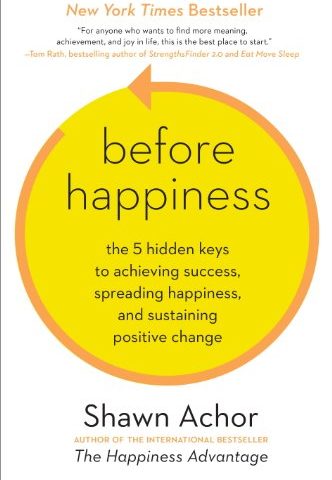- By simply showing employees videos about the more positive (and again, real) effects of stress on the body, we observed a 23 percent drop in fatigue and other stress-related symptoms (1)
- when we are in a negative or fatigued state of mind, our brains actually perceive hills as being significantly higher and backpacks as significantly heavier. And this principle doesn’t apply just to hiking; further research has revealed that when we’re in a negative mindset, all loads feel heavier, all obstacles loom bigger, all mountains seem less surmountable. This is especially true in the workplace, and it’s why, when we look at stress, workload, and competition from a negative mindset, our performance suffers (2)
- if you memorize sets of positive, neutral, and negative words, then sleep for seven to eight hours, you will remember around 80 percent of all three lists a day later. If you miss a night of sleep and stay up for thirty-six hours as I did, you still remember most of the negative and neutral words, but you remember 59 percent fewer positive words (3)
- we experience up to three times higher levels of motivation, engagement, and productivity when our work is centered on our positive meaning markers.4 What’s more, they found that employees who didn’t find their jobs meaningful had higher stress levels and blood pressure during the workweek than those who were able to map meaning at work (4)
- when people started finding work meaningful, their chances of getting depressed or feeling high anxiety two years later dropped dramatically and that lack of meaning markers was one of the main predictors of depression. (5)
- Though both holes were exactly the same size, when the hole looked bigger (because of the projected images of the smaller circles), the golfers made significantly more putts. When the hole looked smaller, they missed significantly more shots (6)
- when people wrote about their positive feelings for a few minutes, they significantly lowered their levels of worry and pessimism.20 Not only did it decrease their anxiety, it raised their performance on tests of memory and critical skills by 10 to 15 percent. (7)
- the best doctors are the ones who also know how to connect with their patients.6 It’s not just because they make the patient feel warm and fuzzy; patients who feel connected to their doctors are more likely to follow the treatment regimen and return for vital checkups (8)
- none of the students in the groups had been assigned the role of leader, yet there was full agreement among the naive raters about who the leader was. It was whoever spoke first. Even more incredible, an astonishing 94 percent of the final answers the groups gave were the answers offered by the person who spoke first. Not only did the thirdparty observers perceive these people as having high social influence, but their own teammates, who knew that no one had been assigned a leadership role, did too. These perceived leaders didn’t bully their teammates into picking their answers, and it wasn’t that they had more correct answers either. My favorite part of the study was that there was no correlation between math skills and being the first person to speak (which only confirms my long-held suspicion that the first person on a team who speaks up is usually the least qualified person to do so). One person simply held more sway over the group because he or she spoke first (9)
References
- Re-thinking Stress: The Role of Mindsets in Determining the Stress Response
- Embodied Perception and the Economy of Action, Perceiving Distance: A Role of Effort and Intent
- The Role of Sleep in Cognition and Emotion, Overnight Therapy: The Role of Sleep in Emotional Brain Processing
- The Link Between Job Satisfaction and Firm Value, with Implications for Corporate Social Responsibility
- A Longitudinal Study of the Relationship between Work Engagement and Symptoms of Anxiety and Depressio
- Get Me Out of This Slump! Visual Illusions Improve Sports Performanc
- Writing about Testing Worries Boosts Exam Performance in the Classroom
- “Patients’ Perception of Hospital Care in the United States, Relationship between Patient Satisfaction with Inpatient Care and Hospital Readmission within 30 Days
- Why Do Dominant Personalities Attain Influence in Face-to-Face Groups? The Competence-Signaling Effects of Trait Dominance
